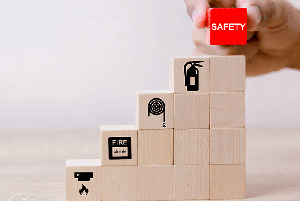AHRQ reports significant declines in health care-associated infections
Health care-associated conditions fall 21 percent over five years
Health-care associated conditions declined by 21 percent (3.1 million) between 2010 and 2015, saving an estimated 125,000 lives and $28 billion in health care costs, according to results reported by the Agency for Healthcare Research and Quality (AHRQ). Among them, hospital falls have declined 15 percent while ventilator-associated pneumonia has decreased 24 percent. Declines also were reported for central line-associated bloodstream infections, postoperative venous thromboembolisms, catheter-associated urinary tract infections and adverse drug events. The findings are based on the "AHRQ National Scorecard on Rates of Hospital-Acquired Infections."
FDA issues MRI safety recommendations for patients with implantable infusion pumps
The Food and Drug Administration recently alerted health care providers and patients to safety concerns with the use of implantable infusion pumps in the magnetic resonance imaging (MRI) environment, citing reports of serious adverse events. Implantable infusion pumps are surgically implanted under the skin, typically in the abdominal region, to deliver medications and fluids in the body. Only pumps labeled as MR conditional may be safely scanned, and only under the specific conditions of safe use. Before scanning patients, MRI technologists should confirm the infusion pump model and ensure that the MRI system meets all conditions provided in the MR conditional labeling, the FDA stated.
HHS awards more than $50 million for new health center sites
Department of Health & Human Services (HHS) Secretary Sylvia M. Burwell in December announced more than $50 million in funding for 75 health centers in 23 states, Puerto Rico and the Federated States of Micronesia. “We expect this competitive New Access Point funding to provide health care to more than 240,000 additional patients,” says Mary Wakefield, R.N., acting deputy secretary at HHS. “These new health center sites will contribute significantly to the health of families and communities across the nation."
FDA alerts providers to safety risks with battery-powered mobile medical carts
The Food and Drug Administration recently warned health care facilities of potential safety risks associated with battery-powered mobile medical carts, including reports of explosion, fires, smoking or overheating of equipment that required hospital evacuations associated with the batteries in the carts. The agency recommends that health care professionals and facilities take certain steps to reduce the potential for injury to patients, staff and visitors. Battery-powered mobile medical carts include crash carts, medication dispensing carts, and carts that carry and power medical devices for point of care, bar-code scanners and patient monitoring.
FGI updates interpretations for health care nurseries and assisted-living facilities
The Facility Guidelines Institute's (FGI's) 2010 Guidelines for Design and Construction of Health Care Facilities and the 2014 Guidelines for Design and Construction of Hospitals and Outpatient Facilities were recently updated to clarify the location of nurseries. The FGI also published an interpretation in the 2014 Guidelines for Design and Construction of Residential Health, Care, and Support Facilities to clarify requirements for showers in assisted-living facilities. Formal interpretations can be downloaded from FGI’s website. The organization is currently finalizing its 2018 Guidelines.




